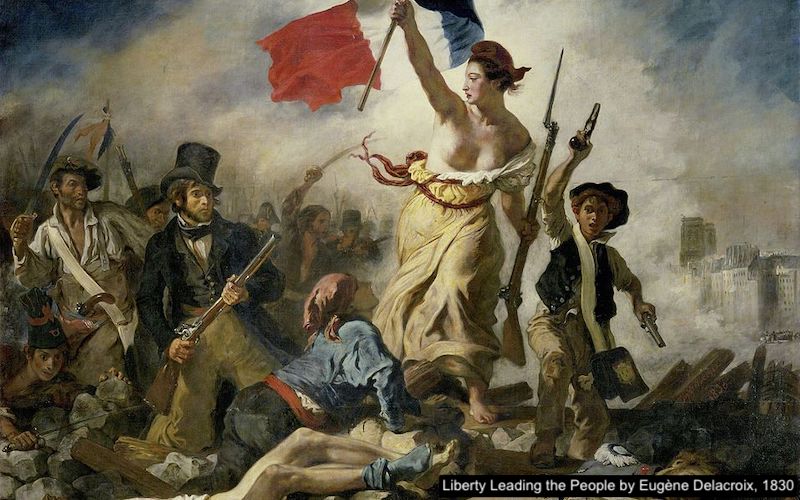The French Revolution
Episode #2 of the course Revolutions that changed the world by James Wareing
Today, we will look at the French Revolution and the philosophical ideas that fueled it. It is arguably the one that has had the greatest impact on modern society. It saw the abolition of the French monarchy and the imposition of a new form of government and society that was based on the concepts of liberty and equality.
What Caused the Revolution?
Before the revolution, France was ruled by monarchs and had a class system in which the nobility and the clergy were at the top and the rest of society were at the bottom. The plight of those at the bottom, who represented the vast majority of the population at around 98%, was exacerbated by the recent economic struggles. The French economy had been compounded by the expensive involvement in the American Revolution and the extravagant spending of the monarchy.
The clergy, monarchy, and the Third Estate (the people) each had a single vote, which was far from representative of the numbers in each group. Eventually, the Third Estate banded together, and on June 17, 1789, they formed the National Assembly, vowing that they would all work together until a new constitution that recognized the rights they deserved was enacted.
Main Events
On July 14th, the National Assembly was growing as tensions were rising in Paris and across France. It was clear that royal authority was on the wane, but there was still no clear direction in which France was heading. The Bastille fortress was stormed in pursuit of weapons, an act that is now considered the start of the French Revolution. On August 4th, the National Assembly announced their Declaration of Rights of Man and of the Citizen. This was inspired by the philosophical ideas of the Enlightenment period, based on thinkers such as Jean-Jacques Rousseau, and gave autonomy, freedom of speech, and equality to the French people.
The National Assembly wrestled in their quest to forge their identity and a way forward for France for the next two years. A divide grew between them: On one side were the Girondins who were in favor of maintaining the monarchy, while the Jacobins wanted France to be free from the monarchy. This point of contention was brought into focus when King Louis XVI attempted to flee the country before being caught, after which a constitutional monarchy was established.
The following year, the Jacobins captured the king and put him on trial, where he was found guilty of treason and sentenced to death, beheaded by the guillotine. France was now free from the monarchy, and the actions of the Jacobins sparked what would become known as the Reign of Terror. Suspected dissidents were sentenced to death in the thousands as Maximilien Robespierre took control of France. After ten months, the violence quelled as France began to stabilize. Robespierre met a fitting end when he himself was executed on July 28, 1794, signaling a transition to a calmer period of the revolution.
In 1795, a new constitution was announced, with the executive branch of government being carried out by a group called the Directory. The Directory was corrupt and needed the support of the army, with Napoleon Bonaparte making a name for himself. In 1799, Napoleon overthrew the Directory in a coup and became the “first consul” of France. This marked the end of the Revolution, as France succumbed to military rule.
What Happened Next?
The French Revolution and the example it demonstrated to the poor and marginalized in other countries sparked the decline of absolute monarchies in Europe. It challenged the traditional views of authority and the power of religion within society. The church became more separated from the state, and representational democratic politics started to become the norm across Europe. Those lower-class citizens who were previously marginalized found themselves, although not completely risen out of poverty, at least given stronger legal rights as a middle class started to develop.
How Is It Viewed Today?
Today, July 14th is a national holiday in France, commemorating the start of the Revolution. Views on it are mixed; on the one hand, the freedom that the Revolution brought is recognized and rightly praised. It spawned the values of liberty and social equality while ridding France of profligate kings. However, some are uncomfortable with the Terrors and violence under Robespierre. The majority, however, recognize that while the Terrors cannot be condoned, it was perhaps a small price to pay for the social changes that it brought to France.
Tomorrow’s lesson will see us learn about the Haitian Revolution, which shares many of its ideals with the French Revolution.
Recommended book
Revolutions: A Very Short Introduction by Jack A. Goldstone
Share with friends

